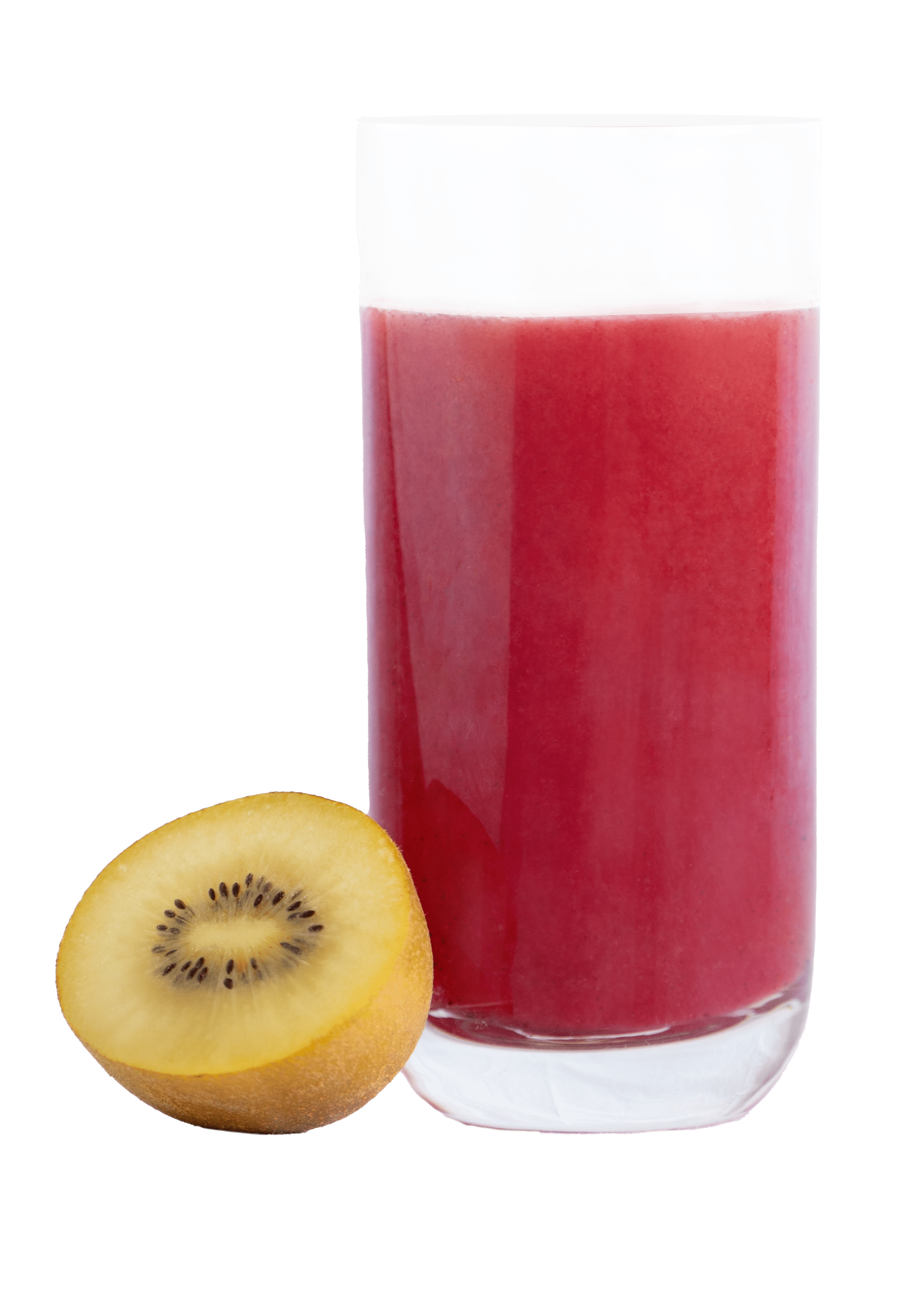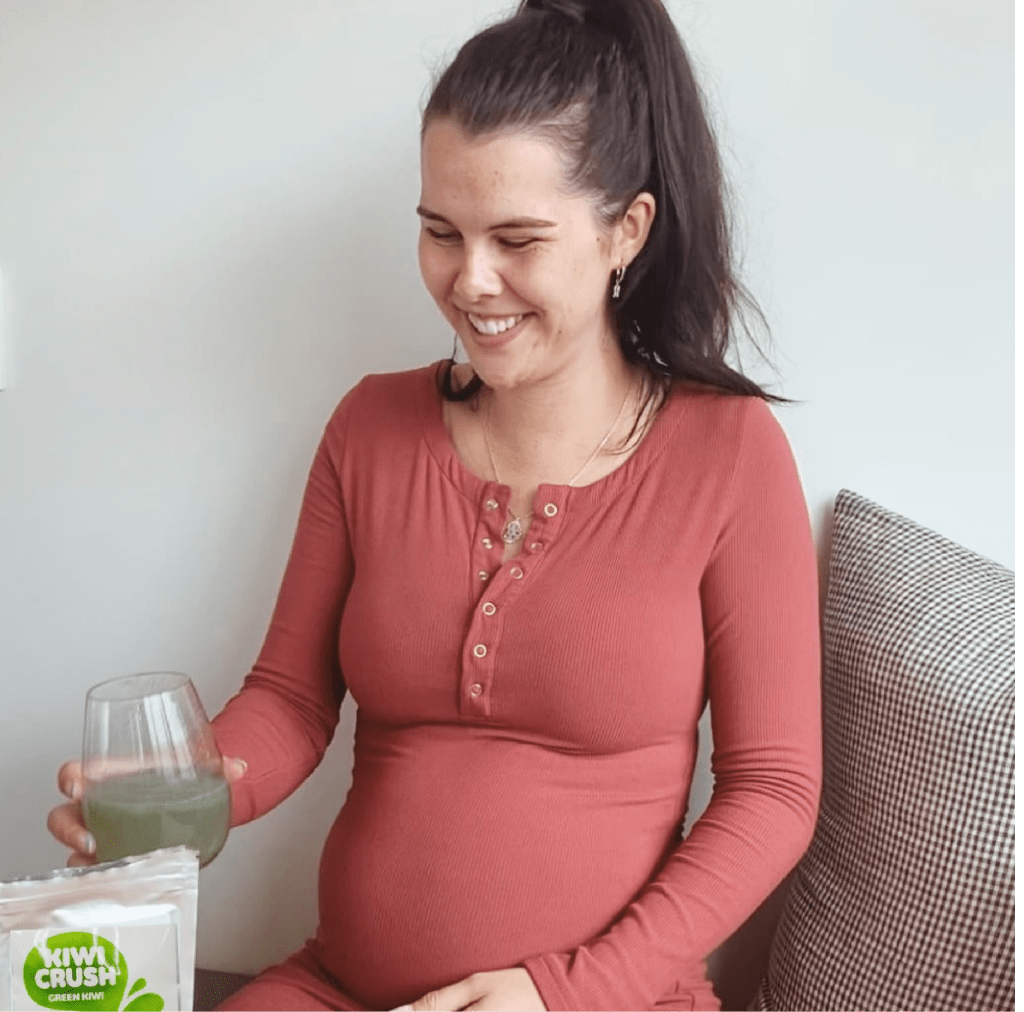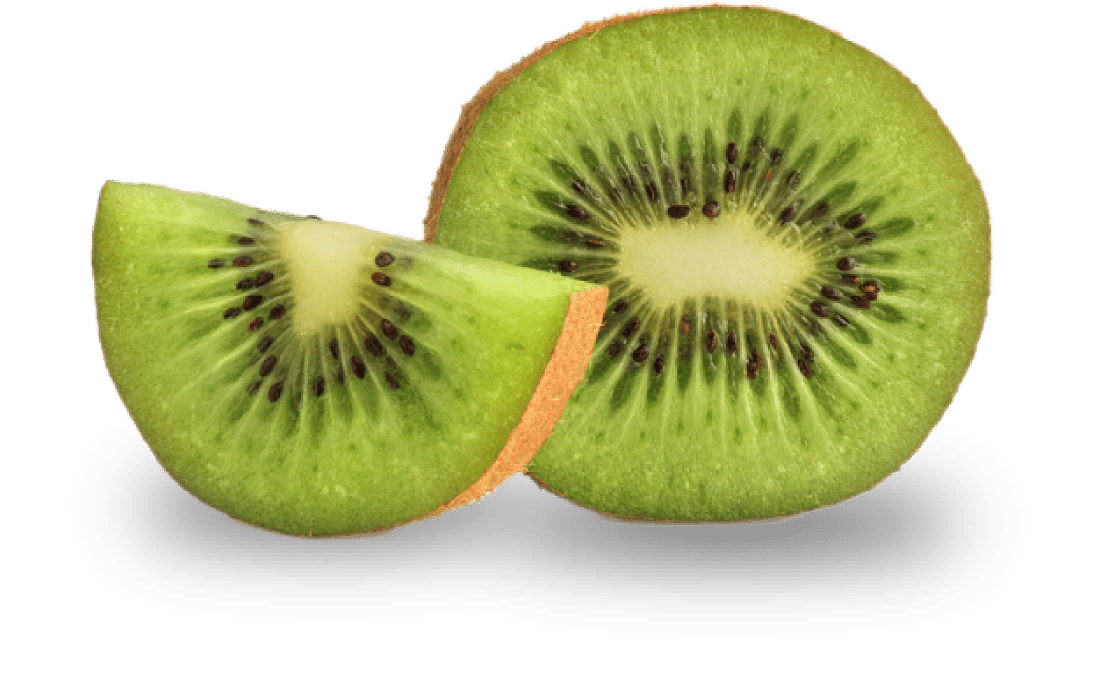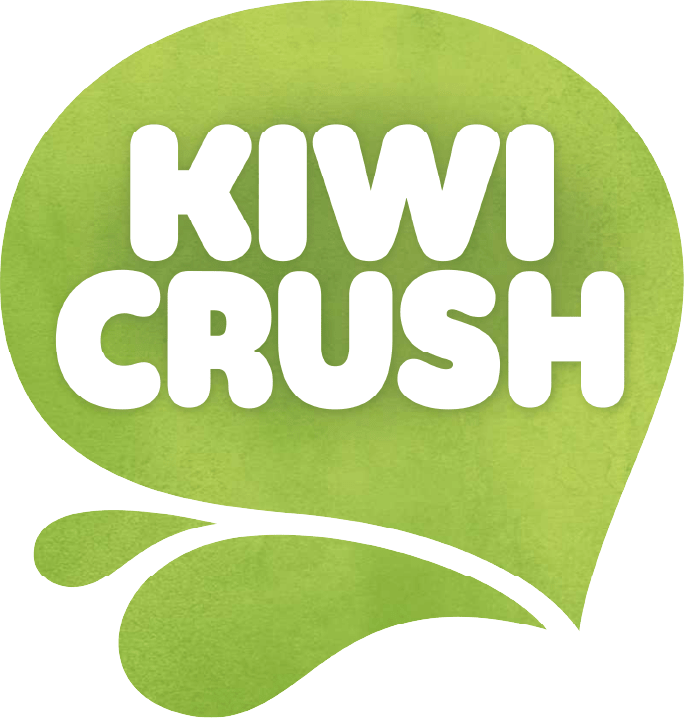Benefits of Kiwi Crush™ during pregnancy
So, you’ve recently (or not so recently) found out you’re pregnant and have quickly learned that there is a lot more to this pregnancy thing than you perhaps realised! In this article, we take a deep dive into the many benefits kiwifruit can provide both your baby and yourself during pregnancy.
Recommended by medical professionals including dietitians, doctors, and nurses. Kiwi Crush™ is beneficial and safe for pregnant and breastfeeding mums and children over the age of two years when the demand for nutrients is higher.

Supports bowel regularity
- Hormonal changes, In particular the hormone progesterone which relaxes muscle tissues including those found in the gut leading to slower digestion and sluggish bowels.
- The growing baby putting pressure on the intestines slowing the movement of food through the digestive system.
- Side effects of iron supplements.
- Changes in diet and activity levels.
- Poor fluid intake.
Thankfully taking Kiwi Crush™ daily is a safe effective way to get things moving for most people. If you have any ongoing concerns please discuss them with your midwife, dietitian, or doctor.

A natural source of folate for your baby
Kiwifruit contains some folate*, which is an essential B vitamin important for cell growth and reproduction. Folate deficiency during pregnancy can lead to neural tube birth defects in the developing fetus.
As with any dietary considerations during pregnancy and breastfeeding, it’s advisable to consult with your healthcare provider or an NZ-registered dietitian who can provide personalized advice based on your individual nutritional needs while taking into account factors such as overall health, dietary preferences, and any specific health conditions.
* Please note 1 kiwifruit does not provide the daily folate requirement, meaning Kiwi Crush™ will not provide enough folate on its own but is a great addition to your diet
Repair with vitamin C
Vitamin C is crucial in supporting overall health and vitality, two factors that are at the top of the list during pregnancy and breastfeeding. Kiwi Crush™ taken daily provides the recommended daily intake of vitamin C. Gold Kiwi Crush™ provides an extra boost for:
- Collagen formation and maintenance. Collagen is a structural protein necessary for healthy connective tissue and cells such as is found in blood vessels, skin, tendons, bones and cartilage, all of which are affected by the changing pregnant body.
- Immune support for the well being of both mum and bub.
- Iron absorption this is important during pregnancy when iron needs to increase to prevent deficiency and reduce fatigue.
- Antioxidant protection from free radicals for supporting the overall health of both mum and her growing baby.
- Breast milk production.
Kiwi Crush™ Gold provides 100% of your recommended daily intake during pregnancy and most of your recommended daily intake during breastfeeding.

Supporting iron absorption
Gold kiwifruit has the highest amount of vitamin C compared to most other fruit with green kiwifruit a close second. Kiwi Crush™ Gold is extremely high in vitamin C, with 1 serve providing on average 185% of our recommended daily intake.
One study found that adding 2 x vitamin C rich gold kiwifruit (Kiwi Crush Gold’s main ingredient) to an iron fortified breakfast cereal improved iron status in young women with low iron. What a great way to delicious and nutritious start to the day.
Supports recovery
Pregnancy can affect our body in lots of different ways, be it due to the hormones involved with relaxing muscles in preparation for birth, changes to skin as it expands to make way for a growing belly or simply through reduced activity intensity.
Fortunately, the enzyme actinidin, which is found naturally in kiwifruit, helps us to break down and digest protein more efficiently. Protein is a necessary factor in maintaining muscle mass and strength.
The high amounts of vitamin C also play a role by encouraging collagen production, a major structural protein found in muscles, collagen reduces inflammation, and oxidative stress caused by free radicals. Collagen is also needed for wound healing, which is important for many women as they recover from the birth of their babies.
Enjoying Kiwi Crush™ during pregnancy as part of an overall healthy, balanced, nutrient-rich diet, will contribute to both mum and bubs health and wellbeing.
As with any dietary considerations during pregnancy and breastfeeding, it’s advisable to consult with your healthcare provider or an NZ Registered Dietitian before starting. They can provide personalized advice based on your individual nutritional needs, taking into account factors such as overall health, dietary preferences, and any specific health conditions.
Sources
Darmon N, Darmon M, Maillot M, Drewnowski A. A nutrient density standard for vegetables and fruits: nutrients per calorie and nutrients per unit cost. J Am Diet Assoc. 2005 Dec;105(12):1881-7. doi: 10.1016/j.jada.2005.09.005. PMID: 16321593.
Georgieff M K, Krebs N F, Cusick S E. (2019) The Benefits and Risks of Iron Supplementation in Pregnancy and Childhood. Annual Review of Nutrition (39): 121-146. https://doi.org/10.1146/annurev-nutr-082018-124213 James, Andra H. MD, MPH. Iron Deficiency Anemia in Pregnancy. Obstetrics & Gynecology 138(4):p 663-674, October 2021. | DOI: 10.1097/AOG.0000000000004559
The content in this article includes varying research from external sources to reach a generalised view and should not be considered as specific to you the individual. This article should not be read as medical advice. For medical advice, we recommend talking to your own doctor.

I give it to all my patients.
Auckland City Hospital


